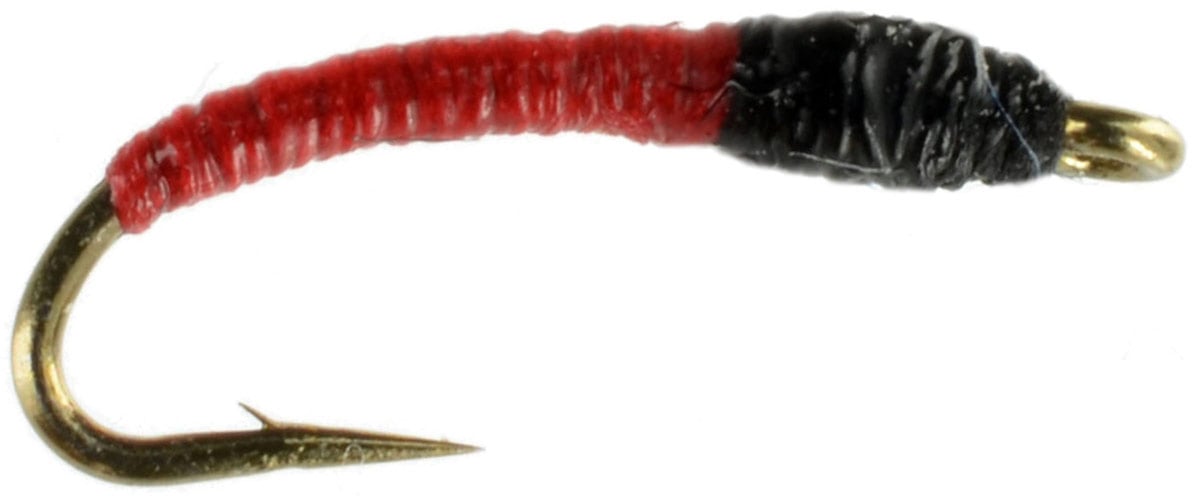Fly of the Week with @anna_on_the_fly | Blood Midge
Blood Midge | A must have winter pattern
by Anna on the Fly • December 12, 2022 in Fly Fishing Tips and Techniques, Anna's Fly of the Week
@anna_on_the_fly is on the water constantly. She is constantly trying new things -- new flies, new techniques, and new gear. We are grateful that she's an Ambassador for DiscountFlies. And, we're grateful that she shares her knowledge and adventures with us here in the "Fly of the Week" (or month during the "off" season) Column.
December 12th 2022
FLY OF THE WEEK! WITH A MUST HAVE WINTER FLY!! This week’s fly will add a little more excitement to those cold snowy days on the river this Winter as proved in these photos from some recent trips the past week.

I skip over this fly all summer but almost always have some variation of it on my nymph rig from November to March/April. So let’s get to it! The BLOOD MIDGE!! In the winter trout favor deep slow water, these deep lies often hold a plethora of red midge larva due to the low oxygen levels
These larva are red because of their hemoglobin molecules, the same oxygen carrying molecules that humans have in our red blood cells. That being said these larvae can survive in areas with very little oxygen levels
As the temps cool- trout move from from the faster, more oxygenated water to slow deep pools and in the Winter they are stacked up right where these red blood midges live. Trout become lazier than usual but trust me they are on the look out for these bright red bites of candy full of nutrients!
I fish this as my last fly as deep as I can, scraping the bottom of the river. Since trout are conserving energy and not darting to eat bugs in the Winter you have to get the fly right in front of them. I’ll start with a size 6 split shot and add tungsten putty as needed to ensure the fly is getting deep enough for the fish to get a good look. A general rule of thumb is - if you aren’t pulling moss off your fly every 4-5 casts than you aren’t deep enough!
Fishing these slow deep pools can get tedious and seem like there aren’t many bites but although the indicator isn’t getting pulled under water like aggressive summer eats they are still eating so watch for the subtle bite! Remember a fly should be drifting at the same speed so if you see it stop for a moment or twitch SET THE HOOK! Hook sets are free & although I have set on moss, rocks & other things - some of the biggest fish I’ve caught have been when the indicator barley stops. You never know! 🤙🏼

